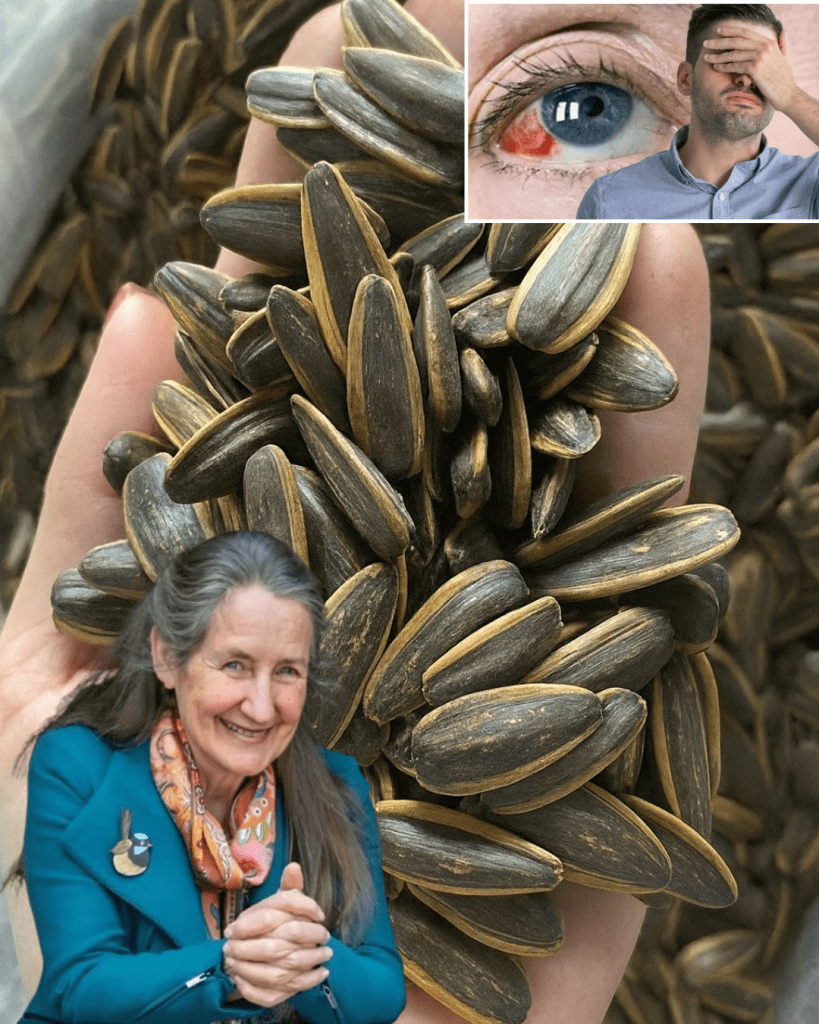🌻 Sunflower seeds: those tiny, crunchy morsels that add a burst of flavor to salads, smoothies, or a simple handful on the go. They’re a global favorite, loved for their nutty taste and satisfying texture. But before you dive into your next snack session, there’s more to these little seeds than meets the eye. Packed with nutrients yet hiding a few surprising pitfalls, sunflower seeds deserve a closer look. Ready to uncover the secrets behind this popular snack? Let’s dig into 11 fascinating facts that will change the way you enjoy sunflower seeds, keeping you hooked and snacking smarter.

🌟 Nutrient Powerhouses You Can’t Ignore
Sunflower seeds are a nutritional goldmine. In just one ounce, you get a wealth of health-boosting goodness: healthy fats like omega-6 fatty acids, plant-based protein, and dietary fiber. They’re also brimming with essential vitamins—think vitamin E for glowing skin, B1 for energy, and B6 for brain health. Minerals like magnesium, selenium, zinc, and copper round out the package, supporting everything from muscle function to immune strength. Adding a small handful to your diet delivers a big wellness boost, making them a snack that punches above its weight.
⚖️ Calorie-Dense: A Double-Edged Sword
While sunflower seeds are nutrient-packed, they come with a catch—they’re high in calories. A single ounce can pack 160–180 calories, which adds up fast if you’re not careful. Mindless munching could tip the scales toward weight gain, especially if you’re not balancing your intake with exercise. The key? Moderation. Stick to a small portion to enjoy the benefits without overloading on calories. It’s all about savoring the crunch without the guilt.
🧂 Watch Out for Sneaky Sodium
Store-bought sunflower seeds often come with a heavy dose of salt or bold seasonings, making them irresistibly tasty but potentially problematic. High sodium intake can lead to elevated blood pressure, fluid retention, and even increase your risk of heart disease over time. To keep your heart happy, opt for unsalted or lightly salted varieties. This simple swap lets you enjoy the natural flavor of sunflower seeds while keeping your sodium levels in check.

🥜 Shells: A Hidden Hazard
Love cracking open sunflower seeds with your teeth? Think twice. Eating the shells can irritate your digestive tract, cause discomfort, or, in rare cases, pose a choking hazard—especially for kids. Shelled (or hulled) sunflower seeds are the safer choice, ensuring you get all the flavor without the risk. If you’re sharing with little ones, always go shell-free to keep snack time worry-free.
🚨 Allergies: Rare but Real
Sunflower seed allergies are uncommon, but they can happen. For some, eating these seeds might trigger itching or swelling in the mouth and throat, skin rashes, or, in extreme cases, severe reactions like anaphylaxis. If you’re new to sunflower seeds or notice unusual symptoms after eating them, stop immediately and check with a healthcare provider. Knowing your body’s limits keeps you safe while you snack.
🔬 Anti-Nutrients: The Absorption Blockers
Sunflower seeds contain phytic acid, an “anti-nutrient” that can bind to essential minerals like iron and zinc, reducing how much your body absorbs. This doesn’t mean you should skip them altogether—there’s an easy fix. Lightly roasting or soaking the seeds before eating can neutralize most of the phytic acid, boosting digestibility and ensuring you get the full nutritional payoff. It’s a small step that makes a big difference.
❤️ Heart-Healthy Heroes
When it comes to heart health, sunflower seeds shine. Their high vitamin E content acts as a powerful antioxidant, protecting your blood vessels from damage. The healthy fats in these seeds also work to lower LDL (“bad”) cholesterol and reduce inflammation, both critical for a strong cardiovascular system. Incorporating a moderate amount into your diet can support a healthier heart, giving you one more reason to love this snack. Snack smart, and your heart will thank you.
🍄 Mold: The Silent Spoiler
Improperly stored sunflower seeds can become a breeding ground for mold and harmful mycotoxins, which can pose health risks if consumed. To avoid this, always buy from reputable brands and store your seeds in an airtight container in a cool, dry place—or better yet, refrigerate them for long-term freshness. A little care in storage ensures your seeds stay safe and delicious, ready for your next snack attack.
🍬 Blood Sugar: Choose Wisely
Plain sunflower seeds have a low glycemic index, making them a great choice for stable blood sugar levels. But beware of flavored varieties like honey-roasted or chocolate-dipped seeds, which often come loaded with added sugars that can cause blood glucose spikes. For a blood sugar-friendly snack, stick to plain or lightly roasted seeds. This way, you keep the health benefits without the sugary downsides, making every bite a smart one.
🦴 Bone-Boosting Benefits
Sunflower seeds aren’t just good for your taste buds—they’re great for your bones, too. Packed with magnesium, calcium, and copper, they support strong bones and help reduce the risk of conditions like osteoporosis. This is especially important for women over 30, who may face higher risks of bone density loss. Adding sunflower seeds to a balanced diet is a tasty way to invest in long-term skeletal health, keeping you strong and active for years to come.
🥄 Too Much of a Good Thing?
Sunflower seeds are rich in fiber, which is fantastic for digestion in moderation. But overdo it, and you might face bloating, gas, or even stomach cramps. To keep things comfortable, cap your daily intake at about one ounce—a small handful that delivers all the benefits without overwhelming your system. It’s the perfect portion to keep your gut happy and your snacking on point.
🌿 How to Snack on Sunflower Seeds the Smart Way
To make the most of sunflower seeds, follow these simple tips for safe and healthy enjoyment:
- Choose unsalted, hulled seeds to avoid excess sodium and digestive irritation.
- Skip sugary or flavored varieties to keep your blood sugar steady and your snack clean.
- Store smart in an airtight container in a cool, dry spot—or refrigerate for maximum freshness.
- Portion control is key: stick to a small handful (about one ounce) daily to avoid overconsumption.
- Check for allergies or digestive sensitivities, and consult a doctor if you’re unsure.
These small habits ensure you get all the goodness of sunflower seeds without the potential pitfalls, making every crunch a step toward better health.

🌻 Why Sunflower Seeds Deserve a Spot in Your Diet
Sunflower seeds are more than just a snack—they’re a nutritional powerhouse that can elevate your wellness game. From supporting heart health and strong bones to delivering essential vitamins and minerals, these tiny seeds pack a serious punch. Their versatility makes them a perfect addition to salads, smoothies, baked goods, or simply enjoyed on their own. But as with any food, mindfulness is key. By choosing high-quality, unsalted seeds, storing them properly, and keeping portions in check, you can unlock their full potential without the drawbacks.
✨ Snack Smarter, Live Better
The next time you reach for a handful of sunflower seeds, you’ll do so with confidence, armed with these 11 essential facts. Whether you’re craving a quick, healthy bite or looking to boost your diet with nutrient-dense foods, sunflower seeds have you covered. Their blend of healthy fats, plant-based protein, and vital nutrients makes them a snack worth celebrating. But by staying mindful of calories, sodium, and proper storage, you’ll ensure every bite is as good for your body as it is for your taste buds.
So go ahead—sprinkle them, blend them, or savor them straight from the bag. With these insights, you’re ready to make sunflower seeds a staple in your healthy lifestyle. Snack smart, and let the humble sunflower seed bring a little sunshine to your day. 🌻









